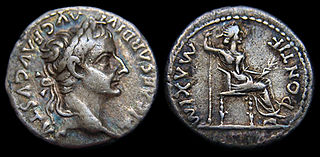
If you’ve seen “The Chosen,” the crowd-funded streaming TV series about the life of Christ, you know its creators have taken some liberties with the gospels to make them more accessible to modern (and young) audiences. One liberty is their depiction of Matthew—the tax collector turned disciple of Christ. He’s portrayed as “on the spectrum,” or autistic. This gives him several behavioral quirks that make him both good with figures and useful to Rome.
Given the ownership its global fan base has taken of this TV series, this Sunday’s reading from Matthew’s gospel (MT 22:15-21) lends itself to the kind of re-imagining the show’s creators have taken with the author of those gospels. So let’s try it with the coin scene in which the Pharisees try to trap Jesus into taking sides against the Romans—thus making himself a target. In their effort, they stoop to patronizing him before entrapping him:
“Teacher, we know that you are a truthful man and that you teach the way of God in accordance with the truth. And you are not concerned with anyone’s opinion, for you do not regard a person’s status. Tell us, then, what is your opinion: is it lawful to pay the census tax to Caesar or not?” Knowing their malice, Jesus said, “Why are you testing me, you hypocrites? Show me the coin that pays the census tax.”
In our suggested version for a future episode of “The Chosen,” Jesus would ask Matthew to hand him a Denarius, or “Tribute Penny,” which has Caesar on the “heads” side and Livia Drusilla, also known as Julia Augusta, the emperor’s wife, on the reverse side. This coin depicts her as the Roman goddess of peace, extending an olive branch.
Back to Sunday’s gospel:
Jesus said to them, “Whose image is this and whose inscription?” They replied, “Caesar’s.” At that he said to them, “Then repay to Caesar what belongs to Caesar and to God what belongs to God.”
Back to our scenario for “The Chosen.” Jesus then flips the coin, catches it and conceals it on the back of his hand. He asks the Pharisees, “Heads or tails?”
Without waiting for an answer from the stunned group, Jesus reveals the Roman goddess of peace and says:
“She offers an olive branch. Blessed are the peacemakers, for they shall be called children of God.” (Matthew’s gospel, Chapter 5, verse 9).
Back to this Sunday’s liturgy, the first reading from Isaiah (IS 45:1, 4-6) shows that the Pharisees’ ancestors—and all of modern humanity’s, for that matter—were in dire need of peacemakers. The powerful tended to enslave the powerless, and God uses Isaiah to address Cyrus the Great—a pagan ruler who would end up doing God’s will by ending the Babylonian captivity of the Jews. Isaiah is the messenger Cyrus could understand—just as the Holy Spirit may well be working through the makers of “The Chosen” to reach its audience in a way that resonates with them. Here Isaiah acknowledges God’s infinite knowledge of who we are, citing our warring nature, and seeking to remedy humanity’s ignorance of who God is by asking Cyrus to choose heads or tails of God’s one-sided coin:
I have called you by your name, giving you a title, though you knew me not. I am the LORD and there is no other, there is no God besides me. It is I who arm you, though you know me not, so that toward the rising and the setting of the sun people may know that there is none besides me.
Cyrus knew the side he needed to call. His choice made him a peacemaker.
We close our make-believe version of “The Chosen” with an excerpt from Sunday’s second reading from Paul’s letter to the Thessalonians (1 THES 1:1-5B). In it we see how God uses His chosen messengers to help others make the right choices.
“[We know], brothers and sisters loved by God, how you were chosen. For our gospel did not come to you in word alone, but also in power and in the Holy Spirit and with much conviction.”
God has chosen many messengers over the centuries—prophets, His own son, you and me, and maybe even 21st century streaming TV producers—to invite humanity to make a choice. Using the coin of His realm, we’re called to show a return on His investment.
–Tom Andel